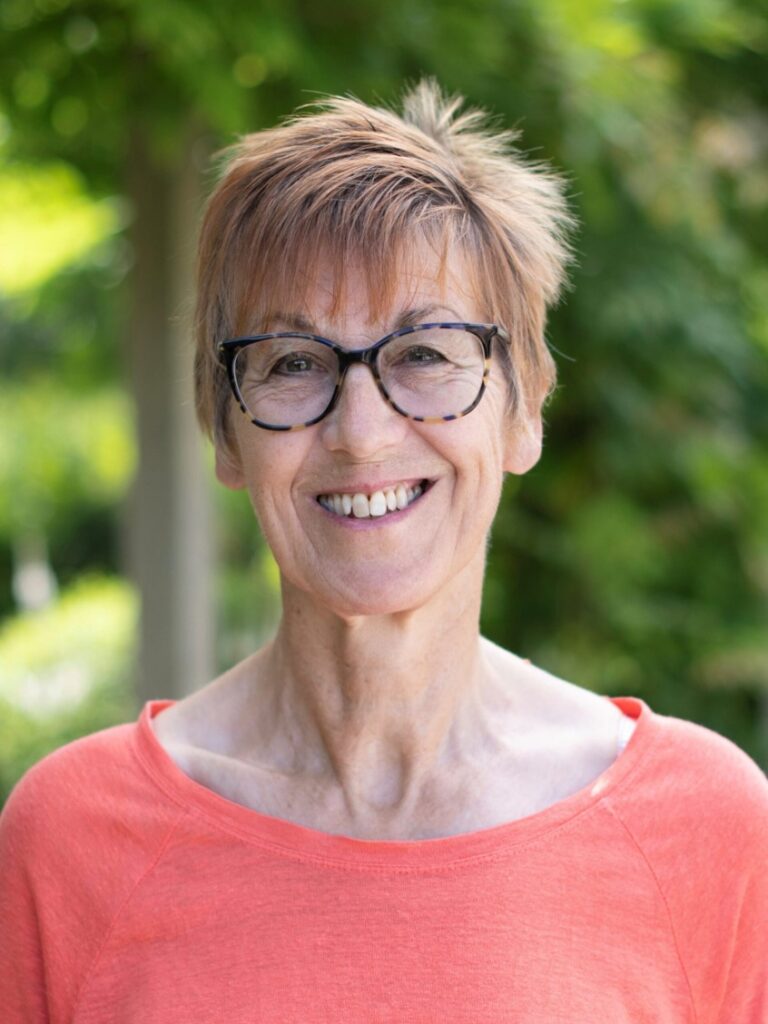The Oxford BRC Patient and Public Advisory Group comprises patients, carers and other members of the public representing different themes of the BRC. The group aims to facilitate patient and public involvement across all themes and to offer support, advice and training, working in partnership with researchers to identify and maximise opportunities for meaningful involvement across Oxford BRC themes.
For more information or to get advice from the group, please email: GetinvolvedOBRC@ouh.nhs.uk or Rachel.Taylor@ouh.nhs.uk.

Jenny Gould
“I became involved as a PPI with the Musculo-Skeletal Trauma Team 4 ½ years ago, following a number of orthopaedic operations. My background is in stress management and psychotherapy. An especially satisfying project was the James Lind Alliance PSP, focusing on fragility fractures of the lower limb. A national survey of patients, carers, and healthcare staff collected opinions on all aspects of lower limb fragility fracture care. These were whittled down to a Top 10 list of research questions. Scientific papers were published, quickly resulting in new research projects.”

Magdalen Wind-Mozley
“In 2015, whilst having an ECG (participant in Ebola vaccine trial), I saw a poster regarding patient and public involvement with the Oxford Vaccine Group and volunteered. Over the last few years I have contributed to assorted trials; from grant applications to letters thanking volunteers for their participation; from feedback on photos, to texts for social media adverts. I find the work absolutely fascinating and, at times, inspirational. With the Covid-19 pandemic and scientific research (into treatments, control measures and vaccines) at the forefront of many people’s minds; this is a critically important time to involve patients and the public at every stage.”

Sue Duncombe
“My interest in research started when my husband was diagnosed and later died of prostate cancer. I’ve developed PPI plans for research submissions, facilitated PPI workshops to ensure researchers get the input they need from PPI contributors and have provided feedback on research proposals. With the cancer lead nurse we have recently set up a PPI group to provide a lay perspective to researchers from people affected by cancer, across all stages of the research cycle from concept to dissemination.”
Mark Jennings

“Originally qualified as a Chartered Engineer, I have over 40 years’ experience as a senior manager and leader at all levels of the healthcare system. Previous roles include Operations Director of a major acute trust, National Programme Lead at the Department of Health, Programme Director at the NHS Institute at the University of Warwick, lead for a Prime Minister’s Delivery Unit review and Director of Healthcare Improvement at the King’s Fund, London. The focus of my work and expertise is now supporting local and national NHS organisations with improving services and increasing productivity. In 2014 I was diagnosed with Parkinson’s disease, and now play a very active role in the Oxford branch of Parkinson’s UK. I represent the Neurology theme on the BRC PPI Advisory Group.”
Nisha Shah

Nisha is a social scientist and a mixed methods researcher at the Centre for Health, Law, and Emerging Technologies (HeLEX) at the University of Oxford. Her research focuses on understanding the impact of data-driven technologies on healthcare and patients through a socio-technical perspective, and a significant portion involves both engaging with and involving perspectives of different stakeholders in developing policy about these. Nisha currently leads a UKRI funded project (AIDE) about enabling artificial intelligence in healthcare for all, and manages a patient and public panel to co-design this project with.
Michael Geeson-Brown

Michael has been a lifelong member of the NHS since 1956. He has been an “honorary” member of the Heart Centre at the John Radcliffe Hospital since 1990. He volunteered to became a member of the Cardiothoracic Public Involvement Panel in February 2018. Involvement in a variety of issues have all contributed to an interesting and worthwhile use of his time. As the Patient member he subsequently joined the BRC in September ’19 on behalf of the Cardiovascular Theme. It is a new area for him and as a patient he finds it both interesting and satisfying. He is currently involved in the Patient and Public Involvement (PPI) Oversight Group for the PROTEUS Study. Michael is a solicitor who specialised in criminal law (now retired).
How the group makes a difference to research
Please see the OBRC Privacy Notice.